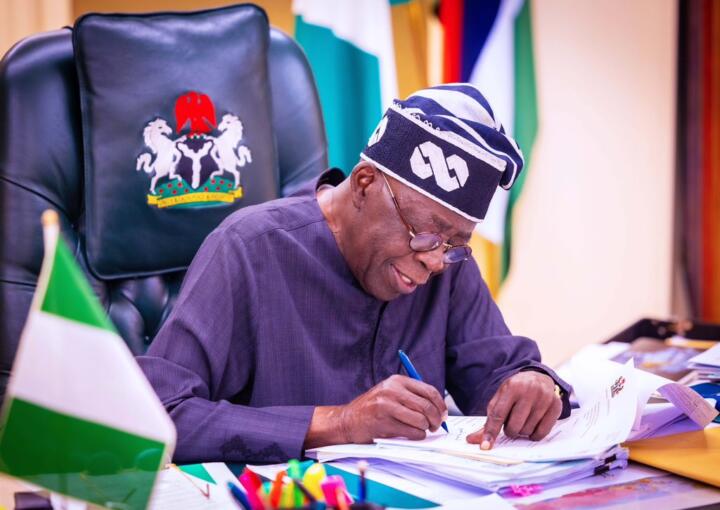The Federal Government of Nigeria has set its sights on a substantial N26 trillion budget for the fiscal year 2024, marking a significant increase compared to the N21.8 trillion budget currently in operation and approved during the tenure of President Muhammadu Buhari.
This ambitious financial plan was unveiled following the conclusion of a Federal Executive Council (FEC) meeting held at the presidential villa in Abuja.
Minister of Planning and Budget, Atiku Bagudu, conveyed the government’s intention to present the budget to the National Assembly for approval before the end of the year. Speaking with State House Correspondents in Abuja, Minister Bagudu underlined the administration’s strong commitment to the timely submission of this substantial budget, and he mentioned that President Bola Tinubu is actively engaged in discussions with the legislative arm to garner their support and endorsement for this monumental fiscal plan.

The cornerstone of the proposed 2024 budget revolves around the consolidation of various economic reforms initiated by the present administration. These reform initiatives are strategically designed to enhance the quality of life for Nigerians and attract much-needed foreign investments to bolster the country’s economic development.
Assumptions form a crucial aspect of any budgetary proposal, and this one is no exception. The 2024 budget hinges on expectations of an improved cash inflow and a bolstered exchange rate. These assumptions draw inspiration from diplomatic efforts led by President Bola Tinubu and other government representatives. The engagements undertaken on the international stage are deemed pivotal to Nigeria’s pursuit of a more robust economic standing on the global platform.
It is apparent that the government is banking on foreign investments to augment capital inflows and fortify the exchange rate, although the precise link between the two factors remains somewhat unclear.
From an optic perspective, questions linger regarding how the government intends to fund this colossal N26 trillion budget, should it be ultimately approved. Recent reports from InfoStride News suggest that the Federal Government concluded the year 2022 with a fiscal deficit of N7.5 trillion, which accounts for a staggering 129% of actual revenue collected. In its budget for 2022, the government had projected revenues of N9 trillion and had factored in a deficit of N5.2 trillion. The federal budget for 2022 amounted to N14.2 trillion, exclusive of Government-Owned Enterprises (GOEs) and project-tied loan expenditures.
Data provided by the budget office unveils that the federal government’s total revenue for the year 2022 amounted to N5.8 trillion, a notable decrease from the N6.7 trillion collected in the corresponding period in 2021. These statistics underscore a growing fiscal gap that needs to be addressed.
Furthermore, the federal government encountered a budget deficit of N4.3 trillion in the first quarter of 2023, significantly exceeding the initial budgetary projection of N2.2 trillion. These figures underscore the complexity of maintaining fiscal discipline and raising the necessary revenues to sustain a budget of this magnitude.
The prospect of achieving a N26 trillion budget in 2024, given the historical performance and prevailing economic challenges, raises concerns about the government’s ability to generate the requisite revenues to support such an ambitious financial plan. The forthcoming budgetary deliberations in the National Assembly will likely be marked by rigorous scrutiny and debate, as lawmakers assess the viability and sustainability of the proposed budget within the context of Nigeria’s economic landscape.
Support InfoStride News' Credible Journalism: Only credible journalism can guarantee a fair, accountable and transparent society, including democracy and government. It involves a lot of efforts and money. We need your support. Click here to Donate
